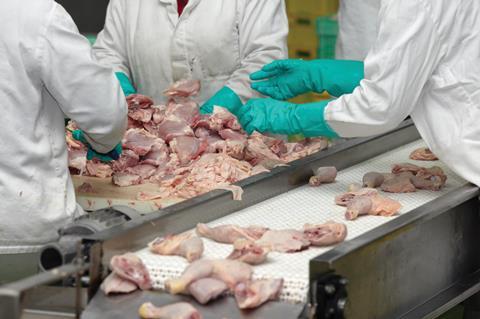A global review of ultra-processed food (UPF) research has claimed that Governments must reverse a rise in so-called UPFs through “collective action”.

The review in the The Lancet stated that so-called UPFs in human diets were “harming global public health”, and claimed that Government policy responses had “done little to attenuate commercial and structural determinants of the problem”.
Researchers commented in the review: “Our final proposition is that the continuing rise of UPFs in human diets is not inevitable; rather, this rise can be disrupted and reversed through sustained social mobilisation and collective action.”
They went on to call for food environment policies to broaden from focusing on food reformulation to mandatory regulations that aim to address and restrict the marketing, availability and affordability of UPFs. The review detailed how researchers believed a wider range of policies “could help to address the broader food system and supply chain drivers” of UPF production, which it said was “particularly important” for preventing an increase in UPF diets in low-income and middle-income countries.
However, the review also recognised that the demand for so-called UPFs was “shaped by broader socioeconmic shifts”, and stated that policies should “increase the availability and affordability of healthy, unprocessed or minimally processed foods”.
Kate Halliwell, chief scientific officer at the Food and Drink Federation (FDF), said: “Food and drink manufacturers make a wide range of products, all of which can form part of a balanced diet – from everyday food and drink, like frozen peas, wholemeal bread and breakfast cereals, to treats like puddings and confectionary. Companies have been making a series of changes over many years to make the food and drink we all buy healthier, in line with Government guidelines. As result, FDF-member products on sale across shops and supermarkets now contain a third less salt and sugar and a quarter fewer calories than they did in 2015.
“For everyone to be confident that food and drink policies and regulations work in the real world, we believe that consultation and collaboration between Government and industry is critical, and we support this being done in as transparent a way as possible.
“The UK’s current dietary advice to eat more fruits, vegetables and fibre and less sugars and salt, is based on decades of scientific evidence. As highlighted by scientists commenting on this report, we agree that we need more, better quality research to be able to understand if there’s an additional link between food processing and health. This aligns with the view of the Government’s independent Scientific Advisory Committee on Nutrition.”
“Fresh and minimally processed meat remains an important source of high-quality protein, essential vitamins and minerals, and can play a central role in a healthy balanced diet.”
Lucas Daglish, BMPA
Lucas Daglish, sustainability manager at the British Meat Processors Association (BMPA), commented: “This latest EAT-Lancet report highlights legitimate concerns around diets dominated by ultra-processed products, and it is important to distinguish these foods from naturally nutrient-dense options but it’s vital not to lump all processed foods together. Fresh and minimally processed meat remains an important source of high-quality protein, essential vitamins and minerals, and can play a central role in a healthy balanced diet.
“Responsible meat processing, which includes safety, preservation and convenience measures, is fundamentally different from the industrial manufacture of ultra-processed products designed to be hyperpalatable and nutrient-poor. The UK meat industry is committed to high standards, transparent labelling and continuous improvement to support healthier dietary patterns and sustainable food systems.”
Tony Goodger, head of communications at the Association of Independent Meat Suppliers (AIMS), said: “Cut through the report to the accompanying infographic, which while it features images of confectionary, dairy products, pizza, burgers and snacks, fails to include the great unknown, namely UPF plant-based foods.
“I believe that the possible health implications of shifting one’s diet to these chemical soups of reformed gloop has yet to be understood and I remain of the view that a balanced diet should be based around fresh meat and poultry cuts and products.”















